
#IncludeTheirStories: Rethinking, Reimagining, and Reshaping Legal Education
DATE: Friday, November 5 2021 - Saturday, November 6 2021
TIME: 9:00 am - 1:30 pm
LOCATION: Virtual Event
 TALK DESCRIPTION:
TALK DESCRIPTION:
Watch the symposium on the S.J. Quinney College of Law YouTube Channel »
The Utah Law Review is delighted to announce its 2021 symposium, entitled #IncludeTheirStories: Rethinking, Reimagining, and Reshaping Legal Education. The entire world was shaken by the events of 2020, a year which the history books will pen with infamy. Along with a global health pandemic that tested both human frailties and social infrastructures, the world witnessed the devastation of George Floyd, an African American man, dying under the knee of Derek Chauvin, a white male police officer. The nation erupted. As 2020 ended, many organizations and institutions clamored both to process ethnic divides and injustices, and gain tools and skills to create meaningful change and lasting impact. Legal education was one such institution. This event will gather scholars and practitioners who have been deeply engaged in this work to determine how law faculty might best prepare today’s law students through teaching racism and related inequities in the classroom. A few law schools have grappled with race-silent neutrality within the 1L curriculum and diversity reading lists have been created, but, however elusive a goal, we have not yet arrived at an inclusive curriculum. So the conversation must continue. We are excited to bring together academics and practitioners to offer practical and pedagogical steps toward rethinking, reimagining, and reshaping the legal education curriculum in efforts to #IncludeTheirStories.
AGENDA:
Friday, November 5
9:00 a.m. – Session 1: Grappling with Our Legal History of Exclusion
Tom I. Romero, II
Joann Thach
Angela Winfield
10:20 a.m. – Break 10:30 a.m. – Session 2: Overcoming the Resistance to DEI
Dr. Robin M. Boylorn
Thomas M. Donnelly
Dr. Robert J. Razzante
11:50 a.m. – Break 12:00 p.m. – Keynote Address:
1:30 p.m. – Conclude
Saturday, November 6
9:00 a.m. – Opening Address
9:20 a.m. – Session 1: Legal Academia & Publishing: Representation Matters
Hannah Brenner Johnson
Steven Dean
Sara L. Ochs
10:40 a.m. – Break 10:50 a.m. – Session 2: 1L Curriculum
Nantiya Ruan
Phyllis Taite
Danielle Tully
12:10 p.m. – Break 12:20 p.m. – Session 3: Upper-level Curriculum
Anastasia Boles
Bridget J. Crawford
Stacy Leeds
1:50 p.m. – Conclude ABOUT THE SPEAKERS:
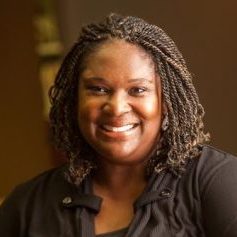 Professor Anastasia M. Boles is an Associate Professor at the UA Little Rock, William H. Bowen School of Law. Professor Boles currently teaches Civil Procedure, Evidence, Employment Discrimination, and Race and the Law. As a scholar, she has published articles on employment law, culturally proficient legal education, and criminal justice policy. Professor Boles co-directs Bowen’s new Center for Racial Justice and Criminal Justice Reform at Bowen.
Professor Anastasia M. Boles is an Associate Professor at the UA Little Rock, William H. Bowen School of Law. Professor Boles currently teaches Civil Procedure, Evidence, Employment Discrimination, and Race and the Law. As a scholar, she has published articles on employment law, culturally proficient legal education, and criminal justice policy. Professor Boles co-directs Bowen’s new Center for Racial Justice and Criminal Justice Reform at Bowen.
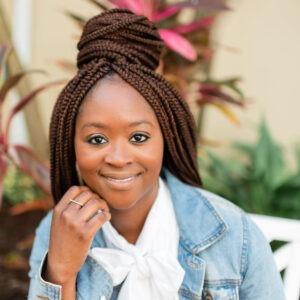 Dr. Robin M. Boylorn is Professor of Interpersonal and Intercultural Communication in the Department of Communication Studies at the University of Alabama. Her research and writing focuses on issues of social identity and diversity, with an emphasis on social justice and advocacy. She is the author of the award-winning monograph Sweetwater: Black Women and Narratives of Resilience (available in a revised edition), co-editor of Critical Autoethnography: Intersecting Cultural Identities in Everyday Life, and co-writer and editor of The Crunk Feminist Collection. Her public writing and cultural commentary has been published in venues including Slate, Ebony, The Guardian, Salon, Gawker and the Crunk Feminist Collective blog. She is also a commentator for Alabama Public Radio and Editor-Elect of the journal Communication and Critical/Cultural Studies. See robinboylorn.com for more information.
Dr. Robin M. Boylorn is Professor of Interpersonal and Intercultural Communication in the Department of Communication Studies at the University of Alabama. Her research and writing focuses on issues of social identity and diversity, with an emphasis on social justice and advocacy. She is the author of the award-winning monograph Sweetwater: Black Women and Narratives of Resilience (available in a revised edition), co-editor of Critical Autoethnography: Intersecting Cultural Identities in Everyday Life, and co-writer and editor of The Crunk Feminist Collection. Her public writing and cultural commentary has been published in venues including Slate, Ebony, The Guardian, Salon, Gawker and the Crunk Feminist Collective blog. She is also a commentator for Alabama Public Radio and Editor-Elect of the journal Communication and Critical/Cultural Studies. See robinboylorn.com for more information.
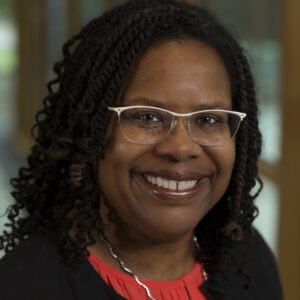 Dean Danielle M. Conway is the Dean and Donald J. Farage Professor of Law at Penn State Dickinson Law. A leading expert in procurement law, entrepreneurship, and intellectual property law, Dean Conway joined Dickinson Law after serving for four years as dean of the University of Maine School of Law and 14 years on the faculty of the University of Hawai‘i at Mānoa, William S. Richardson School of Law, where she was the inaugural Michael J. Marks Distinguished Professor of Business Law. Prior to her deanships, Dean Conway was a member of the faculties at the Georgetown University Law Center and the University of Memphis Cecil C. Humphreys School of Law. She also served as a Fulbright Senior Scholar in Australia and later as Chair in Law at LaTrobe University, Faculty of Law & Management.
Dean Danielle M. Conway is the Dean and Donald J. Farage Professor of Law at Penn State Dickinson Law. A leading expert in procurement law, entrepreneurship, and intellectual property law, Dean Conway joined Dickinson Law after serving for four years as dean of the University of Maine School of Law and 14 years on the faculty of the University of Hawai‘i at Mānoa, William S. Richardson School of Law, where she was the inaugural Michael J. Marks Distinguished Professor of Business Law. Prior to her deanships, Dean Conway was a member of the faculties at the Georgetown University Law Center and the University of Memphis Cecil C. Humphreys School of Law. She also served as a Fulbright Senior Scholar in Australia and later as Chair in Law at LaTrobe University, Faculty of Law & Management.
 Professor Bridget J. Crawford teaches Federal Income Taxation; Estate and Gift Taxation; and Wills, Trusts and Estates. Her scholarship focuses on issues of taxation, especially wealth transfer taxation; property law, especially wills and trusts; tax policy; and gender and the law. Professor Crawford’s scholarship has been published in journals including the Washington University Law Review, The University of Chicago Legal Forum, Boston University Law Review, U.C. Davis Law Review, Washington & Lee Law Review, and specialty journals at Harvard, Yale, Columbia, the University of Pennsylvania, and the University of Michigan.
Professor Bridget J. Crawford teaches Federal Income Taxation; Estate and Gift Taxation; and Wills, Trusts and Estates. Her scholarship focuses on issues of taxation, especially wealth transfer taxation; property law, especially wills and trusts; tax policy; and gender and the law. Professor Crawford’s scholarship has been published in journals including the Washington University Law Review, The University of Chicago Legal Forum, Boston University Law Review, U.C. Davis Law Review, Washington & Lee Law Review, and specialty journals at Harvard, Yale, Columbia, the University of Pennsylvania, and the University of Michigan.
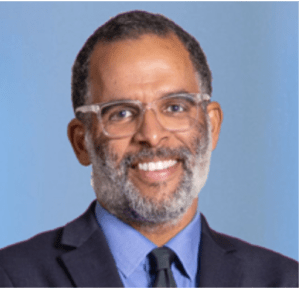 Professor Steven Dean is professor of law at Brooklyn Law School. His teaching focuses on individual and corporate tax. He writes and podcasts about tax law and social enterprise. His scholarship addresses the impact of neoliberalism and racial capitalism and the evolving relationship between financial profit and social mission evident in the emergence of social enterprise, impact investing, and unregulated philanthropy.
Professor Steven Dean is professor of law at Brooklyn Law School. His teaching focuses on individual and corporate tax. He writes and podcasts about tax law and social enterprise. His scholarship addresses the impact of neoliberalism and racial capitalism and the evolving relationship between financial profit and social mission evident in the emergence of social enterprise, impact investing, and unregulated philanthropy.
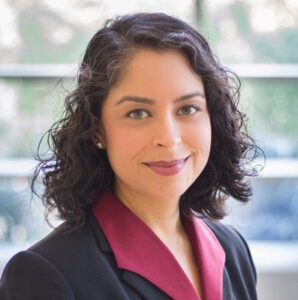 Professor Meera E. Deo is Director of the Law School Survey of Student Engagement (LSSSE) and Professor of Law at Southwestern Law School. Last year, she was the Neukom Fellows Research Chair in Diversity and Law at the American Bar Foundation. Her research merges jurisprudence with empirical methods to interrogate institutional diversity, affirmative action, and racial representation. Professor Deo’s book, Unequal Profession: Race and Gender in Legal Academia, examines how the intersection of raceXgender affects faculty experiences. She has received support from the National Science Foundation, Paul & Daisy Soros Fellowship, AccessLex, Wolters Kluwer, and others. Professor Deo is a member of the American Law Institute.
Professor Meera E. Deo is Director of the Law School Survey of Student Engagement (LSSSE) and Professor of Law at Southwestern Law School. Last year, she was the Neukom Fellows Research Chair in Diversity and Law at the American Bar Foundation. Her research merges jurisprudence with empirical methods to interrogate institutional diversity, affirmative action, and racial representation. Professor Deo’s book, Unequal Profession: Race and Gender in Legal Academia, examines how the intersection of raceXgender affects faculty experiences. She has received support from the National Science Foundation, Paul & Daisy Soros Fellowship, AccessLex, Wolters Kluwer, and others. Professor Deo is a member of the American Law Institute.
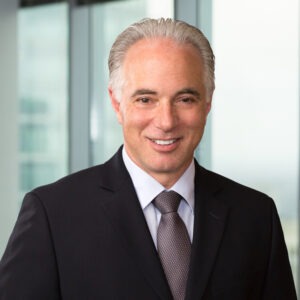 Thomas M. Donnelly has practiced environmental and insurance coverage law for more than 30 years. He represents clients in environmental litigation and regulatory enforcement proceedings, provides compliance counseling and due diligence/transactional support, and assists clients in securing coverage from their insurers. Tom’s clients have included energy, oil and gas, and mining companies; technology companies; aerospace, engineering, and construction companies; automotive, equipment, and consumer product manufacturers; retailers; financial institutions; and real property owners and developers. He has appeared in all federal district courts in California, the Ninth and Eleventh Circuit Courts of Appeals, and California trial and appellate courts.
Thomas M. Donnelly has practiced environmental and insurance coverage law for more than 30 years. He represents clients in environmental litigation and regulatory enforcement proceedings, provides compliance counseling and due diligence/transactional support, and assists clients in securing coverage from their insurers. Tom’s clients have included energy, oil and gas, and mining companies; technology companies; aerospace, engineering, and construction companies; automotive, equipment, and consumer product manufacturers; retailers; financial institutions; and real property owners and developers. He has appeared in all federal district courts in California, the Ninth and Eleventh Circuit Courts of Appeals, and California trial and appellate courts.
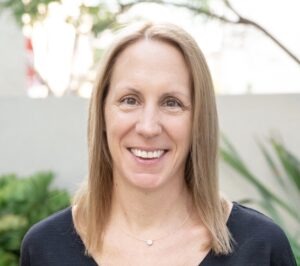 Dean Brenner Johnson’s research sits at the complex intersection of law and gender, focusing specifically on institutions and disparate power dynamics. Her research falls into two distinct areas: gender-based violence and gender inequality in the legal profession. She studies the perpetration of sexual violence, and the related reporting, investigation, and adjudication, in closed and quasi-closed institutional settings like prisons, the military, immigration detention centers, and institutions of higher education. Her initial interest in researching these systems stems from her involvement as a co-principal investigator on a National Science Foundation grant that explored the reporting of sexual violence by women in prison. Her current work explores sexual violence that is perpetrated in quasi-closed institutional systems: “A Title IX Conundrum: Are Campus Visitors Protected From Sexual Assault” was recently published by the Iowa Law Review.
Dean Brenner Johnson’s research sits at the complex intersection of law and gender, focusing specifically on institutions and disparate power dynamics. Her research falls into two distinct areas: gender-based violence and gender inequality in the legal profession. She studies the perpetration of sexual violence, and the related reporting, investigation, and adjudication, in closed and quasi-closed institutional settings like prisons, the military, immigration detention centers, and institutions of higher education. Her initial interest in researching these systems stems from her involvement as a co-principal investigator on a National Science Foundation grant that explored the reporting of sexual violence by women in prison. Her current work explores sexual violence that is perpetrated in quasi-closed institutional systems: “A Title IX Conundrum: Are Campus Visitors Protected From Sexual Assault” was recently published by the Iowa Law Review.
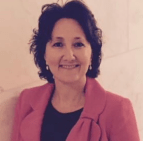 Stacy Leeds is an experienced leader in law, higher education, governance, economic development and conflict resolution. In 2021, she joined the faculty at Sandra Day O’Connor College of Law, Arizona State University as the Foundation Professor of Law and Leadership. Leeds is Dean Emeritus, University of Arkansas School of Law (2011-2018) and the first Indigenous woman to lead a law school. During her tenure as dean, Arkansas Law achieved the highest-ever rankings: No. 1 Best Value in Legal Education (National Jurist 2014) and 33rd among public law schools (U.S. News 2014). Leeds served as the inaugural Vice Chancellor for Economic Development at the University of Arkansas (2017-2020). She planned and implemented the new Office of Economic Development to maximize university innovation for societal impact. Her portfolio included technology transfer, industry partnerships, small business and entrepreneurial support and programs seeking to increase access to capital.
Stacy Leeds is an experienced leader in law, higher education, governance, economic development and conflict resolution. In 2021, she joined the faculty at Sandra Day O’Connor College of Law, Arizona State University as the Foundation Professor of Law and Leadership. Leeds is Dean Emeritus, University of Arkansas School of Law (2011-2018) and the first Indigenous woman to lead a law school. During her tenure as dean, Arkansas Law achieved the highest-ever rankings: No. 1 Best Value in Legal Education (National Jurist 2014) and 33rd among public law schools (U.S. News 2014). Leeds served as the inaugural Vice Chancellor for Economic Development at the University of Arkansas (2017-2020). She planned and implemented the new Office of Economic Development to maximize university innovation for societal impact. Her portfolio included technology transfer, industry partnerships, small business and entrepreneurial support and programs seeking to increase access to capital.
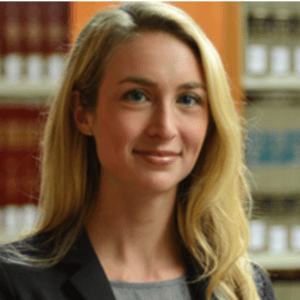 Sara L. Ochs is an Assistant Professor of Law at the University of Louisville, Louis D. Brandeis School of Law, where she teaches Lawyering Skills and International Criminal Law. Her scholarly research explores the prevalence and impact of imposter syndrome in legal academia as well as issues of international criminal law and transitional justice. Sara earned her juris doctor summa cum laude from Loyola University New Orleans College of Law, following which she clerked for the Honorable Carl J. Barbier on the U.S. District Court for the Eastern District of Louisiana and practiced as a civil litigator in New Orleans. Sara also serves as a volunteer International Humanitarian Law Instructor for the American Red Cross and is a certified Trial Monitor with the Clooney Foundation for Justice.
Sara L. Ochs is an Assistant Professor of Law at the University of Louisville, Louis D. Brandeis School of Law, where she teaches Lawyering Skills and International Criminal Law. Her scholarly research explores the prevalence and impact of imposter syndrome in legal academia as well as issues of international criminal law and transitional justice. Sara earned her juris doctor summa cum laude from Loyola University New Orleans College of Law, following which she clerked for the Honorable Carl J. Barbier on the U.S. District Court for the Eastern District of Louisiana and practiced as a civil litigator in New Orleans. Sara also serves as a volunteer International Humanitarian Law Instructor for the American Red Cross and is a certified Trial Monitor with the Clooney Foundation for Justice.
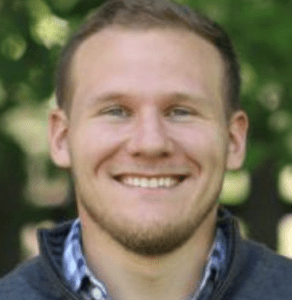 Professor Robert J. Razzante received his PhD from the Hugh Downs School of Human Communication at Arizona State University. His engaged scholarship seeks to transform conflict surrounding the intersections of culture, privilege, and marginalization. Rob’s dissertation research is with a multi-national healthcare organization desiring a more inclusive workplace for their caregivers. The study uses Interpretive Structural Modeling to offer suggestions for organizational leaders when allocating resources for building inclusion.
Professor Robert J. Razzante received his PhD from the Hugh Downs School of Human Communication at Arizona State University. His engaged scholarship seeks to transform conflict surrounding the intersections of culture, privilege, and marginalization. Rob’s dissertation research is with a multi-national healthcare organization desiring a more inclusive workplace for their caregivers. The study uses Interpretive Structural Modeling to offer suggestions for organizational leaders when allocating resources for building inclusion.
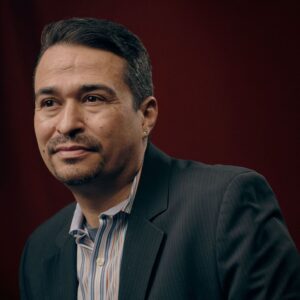 Professor Tom Romero is nationally known interdisciplinary legal historian of the racial landscape of the American West. Bringing together issues such as immigration, school desegregation, property, land use, urban development and water law together, Dr. Romero has documented in numerous articles, essays and book chapters, the battle for racial equity and justice in the region. Currently, Dr. Romero is revising a book manuscript on the legal history of race relations in post-World War II Denver, Colorado. He also working on several projects related to the multiracial history of water justice. Those projects include a book chapter that examines the intersection between water development and immigration law in the late 19th and early 20th centuries and a community based participatory research project on water access and water quality issues impacting a Latinx neighborhood in Denver, Colorado. Dr. Romero received his Ph.D and J.D. from the University of Michigan and was part of the founding generation of critical race theory students a and the Chicano-Latino Law Review, among others.
Professor Tom Romero is nationally known interdisciplinary legal historian of the racial landscape of the American West. Bringing together issues such as immigration, school desegregation, property, land use, urban development and water law together, Dr. Romero has documented in numerous articles, essays and book chapters, the battle for racial equity and justice in the region. Currently, Dr. Romero is revising a book manuscript on the legal history of race relations in post-World War II Denver, Colorado. He also working on several projects related to the multiracial history of water justice. Those projects include a book chapter that examines the intersection between water development and immigration law in the late 19th and early 20th centuries and a community based participatory research project on water access and water quality issues impacting a Latinx neighborhood in Denver, Colorado. Dr. Romero received his Ph.D and J.D. from the University of Michigan and was part of the founding generation of critical race theory students a and the Chicano-Latino Law Review, among others.
 Nantiya Ruan, Professor of the Practice of Law, the University of Denver Sturm College of Law, teaches first-year lawyering, poverty law, and advanced workplace law. She is the faculty director of the Workplace Law Program and the Homeless Advocacy Policy Project. Professor Ruan writes in the areas of low-wage work, class and collective actions, poverty and homelessness, and social justice teaching.
Nantiya Ruan, Professor of the Practice of Law, the University of Denver Sturm College of Law, teaches first-year lawyering, poverty law, and advanced workplace law. She is the faculty director of the Workplace Law Program and the Homeless Advocacy Policy Project. Professor Ruan writes in the areas of low-wage work, class and collective actions, poverty and homelessness, and social justice teaching.
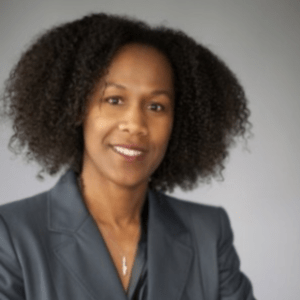 Professor Phyllis Taite teaches a combination of Federal Income Tax, Wills, Trusts & Estates, and Property-based courses. Her teaching package may also include Estate & Gift Tax, and seminar courses with an emphasis on income and wealth inequalities and other social justice issues. She has over 18 years of teaching experience and continues to teach with a passion that brings out excitement and interest to otherwise difficult subjects.
Professor Phyllis Taite teaches a combination of Federal Income Tax, Wills, Trusts & Estates, and Property-based courses. Her teaching package may also include Estate & Gift Tax, and seminar courses with an emphasis on income and wealth inequalities and other social justice issues. She has over 18 years of teaching experience and continues to teach with a passion that brings out excitement and interest to otherwise difficult subjects.
 Joann Thach is Snell & Wilmer’s Senior Director of Diversity, Equity & Inclusion. She oversees the firm’s commitment to expanding and supporting diversity, fostering an inclusive culture and supporting initiatives that positively impact the greater community. This includes working with the firm’s Diversity, Equity, and Inclusion and Women’s Initiative Network committees and affinity groups and its efforts to retain and promote top talent. Thach has a long history and passion in advocating for justice, equity and inclusion. Prior to joining Snell & Wilmer, she spent a number of years leading recruiting, training and corporate social responsibility efforts with a lens for diversity and inclusion at an AmLaw 100 firm. Thach spent the early years of her career expanding access to colleges and legal services within low-income communities. She received her undergraduate degree at UCLA in sociology and philosophy and completed an intensive Critical Race Theory & Intersectionality program sponsored by the African American Policy Forum, in partnership with Columbia Law School and UCLA School of Law.
Joann Thach is Snell & Wilmer’s Senior Director of Diversity, Equity & Inclusion. She oversees the firm’s commitment to expanding and supporting diversity, fostering an inclusive culture and supporting initiatives that positively impact the greater community. This includes working with the firm’s Diversity, Equity, and Inclusion and Women’s Initiative Network committees and affinity groups and its efforts to retain and promote top talent. Thach has a long history and passion in advocating for justice, equity and inclusion. Prior to joining Snell & Wilmer, she spent a number of years leading recruiting, training and corporate social responsibility efforts with a lens for diversity and inclusion at an AmLaw 100 firm. Thach spent the early years of her career expanding access to colleges and legal services within low-income communities. She received her undergraduate degree at UCLA in sociology and philosophy and completed an intensive Critical Race Theory & Intersectionality program sponsored by the African American Policy Forum, in partnership with Columbia Law School and UCLA School of Law.
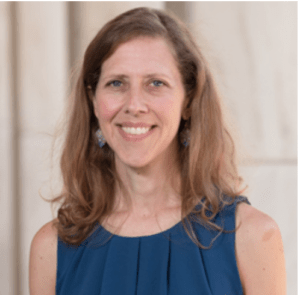 Professor Danielle Tully joined the Brooklyn Law School faculty in 2021 as an Assistant Professor of Legal Writing. She previously taught at Northeastern University School of Law and Suffolk University School of Law. In addition, she was a clinical teaching fellow in the Civil Rights and Constitutional Litigation Clinic at Seton Hall. Her scholarship focuses on assessment, pedagogy, and legal education reform. Her recent article, “The Cultural (Re)Turn: The Case for Teaching Culturally Responsive Lawyering,” 16 Stanford Journal of Civil Rights & Civil Liberties 201 (2020), was selected for the Legal Writing, Reasoning, and Research Section’s Newer Scholars’ Showcase at the 2021 meeting of the American Association of Law Schools.
Professor Danielle Tully joined the Brooklyn Law School faculty in 2021 as an Assistant Professor of Legal Writing. She previously taught at Northeastern University School of Law and Suffolk University School of Law. In addition, she was a clinical teaching fellow in the Civil Rights and Constitutional Litigation Clinic at Seton Hall. Her scholarship focuses on assessment, pedagogy, and legal education reform. Her recent article, “The Cultural (Re)Turn: The Case for Teaching Culturally Responsive Lawyering,” 16 Stanford Journal of Civil Rights & Civil Liberties 201 (2020), was selected for the Legal Writing, Reasoning, and Research Section’s Newer Scholars’ Showcase at the 2021 meeting of the American Association of Law Schools.
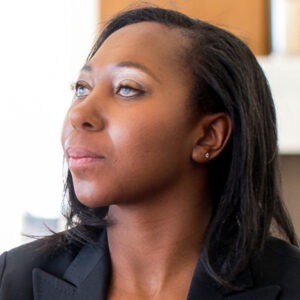 Angela Winfield is Chief Diversity Officer for the Law School Admission Council. In this role, she provides leadership, vision, energy, and a unified philosophy to LSAC’s diversity, equity, and inclusion efforts on behalf of member law schools and the students who seek a career in law. Prior to her current position, Winfield was associate vice president for inclusion and workforce diversity at Cornell University, where she led the university’s affirmative action and federal contractor compliance programs, managed the university’s five identity/affinity-based colleague network groups, provided training opportunities for the 7,000+ member staff, oversaw religious accommodations, and served on the university’s ADA coordinator team. Winfield is a certified leadership coach and motivational speaker and has presented to companies including 3M, Société Générale, and LexisNexis. She also is an advisory board member for the Burton Blatt Institute at Syracuse University, serves on the board of trustees for Cayuga Community College, and sits on the board of directors for The Rev Theatre Company, Reader’s Digest Partners for Sight Foundation, and Success Beyond Sight. Winfield earned her JD from Cornell Law School and is admitted to the New York bar. She earned her BA from Barnard College of Columbia University.
Angela Winfield is Chief Diversity Officer for the Law School Admission Council. In this role, she provides leadership, vision, energy, and a unified philosophy to LSAC’s diversity, equity, and inclusion efforts on behalf of member law schools and the students who seek a career in law. Prior to her current position, Winfield was associate vice president for inclusion and workforce diversity at Cornell University, where she led the university’s affirmative action and federal contractor compliance programs, managed the university’s five identity/affinity-based colleague network groups, provided training opportunities for the 7,000+ member staff, oversaw religious accommodations, and served on the university’s ADA coordinator team. Winfield is a certified leadership coach and motivational speaker and has presented to companies including 3M, Société Générale, and LexisNexis. She also is an advisory board member for the Burton Blatt Institute at Syracuse University, serves on the board of trustees for Cayuga Community College, and sits on the board of directors for The Rev Theatre Company, Reader’s Digest Partners for Sight Foundation, and Success Beyond Sight. Winfield earned her JD from Cornell Law School and is admitted to the New York bar. She earned her BA from Barnard College of Columbia University.
